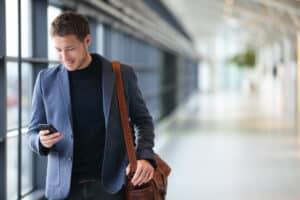8 Impacts Of Traveling On Education

This article was written exclusively for Expat Network by Emma Nelson
For students, traveling is an ideal source of knowledge, and the process helps learners to develop vital survival skills that aren’t taught in class. That said, regardless of the travel destination you choose, below is a list of 8 common ways that traveling impacts your education.
Extending Students’ Horizons
Food, manners and way of life across diverse cultures differ from one society to the other. But despite these cultural diversities, many communities and cultures are bonded by similar practices, which play a vital role in enabling interaction between the societies.
Traveling enables you to be entirely immersed in a country and its culture by connecting with local people and learning how they experience the world. Learning about new cultures helps you see the challenges and issues you face daily in a different way.
Enhancing Personal Growth
Visiting regions with harsh climatic conditions enable you to get out of your comfort zone, which in return creates a more confident, responsible, and independent individual. Exposure to these harsh environments and situations enhances adaptability to change and uncertainty.
On the other hand, traveling helps you test your limits. Thus, you can know your strengths and weaknesses. Besides that, traveling enables you to learn more about your likes and dislikes.
Improving Social Skills
When traveling, you will easily find yourself interacting with strangers, asking for direction, and seeking favors. Therefore, if you have poor communication skills, traveling will help you, as communication isn’t a choice but a must during travel.
Additionally, lack of communication, public speaking, and presentation skills can limit opportunities for you, but traveling makes it simple. Also, during the traveling process, learning new languages might be a vital necessity.
Here, you will get a chance to practice your prowess by conversing with native speakers of the new language. Finally, with improved social skills, you can make new friends and grow your social network easily.
Offering Better Understanding of History
Textbook evidence cannot be felt, heard, smelled, or tasted. However, traveling provides you with a different perspective from what you learn in textbooks. The process, therefore, broadens your understanding of history and the world as you travel more and engage with different cultures.
Creating a Sense of Independence
Traveling helps you to become independent, as, during the process, students are forced to make decisions on their own. These decisions can be about:
- Time management during the trip
- Planning their trip’s cost
- Managing the resources they have during the trip.
This independence reflects the individuality that every student needs during the learning process. With the skills, challenges that arise during the semester planning or professional essay writer seeking process become a thing of the past.
Keeping Students Informed
Traveling enables you to interact with different people, thereby learning more about their culture as well as the challenges facing a given community. This information is first-hand and, in most cases, detailed than the info you read on papers or televisions.
If you are a research or history student, you will definitely learn the importance of first-hand data. Additionally, traveling offers in-depth knowledge of the political and economic nature of the world we live in.
Making Learning Interactive and Entertaining
Being confined in the walls of a classroom can be boring and monotonous. Fortunately, the introduction of technology, such as virtual reality and other simulation tools, has played an important role in making education interactive and engaging.
However, the effect of tech can’t be compared to going on field trips to a given area. During the trips, students interact with specialists and experts in their field of study. Additionally, the process enables students to learn a thing or two and ask pressing queries during their interaction with the experts.
Enabling Students to Explore New Ideas
As you travel to places you’ve never been to before, learning new survival skills becomes a vital necessity. In the process, the traveling experience enables you to learn new things that you might not have come across during your daily undertakings. However, learning these survival skills requires a sharp mind since you have limited adaptation time.
Final Thoughts
Traveling is fun, and to students, it is the best way of learning new things that affect the world at large. The process keeps you up to date with all that’s happening around the globe, extends your horizon, bolsters personal growth, enhances your social skills, and offers a great understanding of history. In other words, traveling is an ideal source of knowledge, especially to university students.